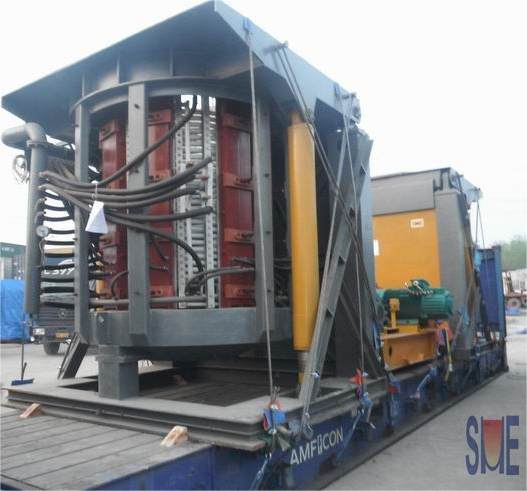The size of the grain can be expressed by the number of grains per unit volume, the more the number, the finer the grain. Experiments have shown that fine-grained metals at room temperature have higher strength, hardness, plasticity and toughness than coarse-grained metals. This is because fine grains by external forces can be dispersed in more grains of plastic deformation, plastic deformation is more uniform, stress concentration is smaller; in addition, the finer the grain, the larger the grain boundary area, the more curved the grain boundary, the more unfavourable to the expansion of cracks. The industrial method of refining grains to improve the strength of the material is called fine grain strengthening. The more grain boundaries, the finer the grains, the smaller the average value of the grains, the higher the yield strength of the material, according to the Hall - Match relationship.
In the casting production in order to improve the cooling rate of the casting, can be used to improve the casting heat absorption capacity and thermal conductivity and other measures; can also be used to reduce the pouring temperature, slow pouring, etc.. Fast cooling methods are generally only applicable to small or thin parts, large parts are difficult to achieve a large degree of subcooling.
If the liquid metal cooling using a great degree of subcooling, can make some metal solidification in time to nucleation and make the liquid metal atomic arrangement state retained to room temperature, to get amorphous materials, also known as metal glass.
Densification treatment is to add a chemical element or compound (densifier) to the liquid metal, densifier increases the number of non-homogeneous nuclei or hinder the growth of nuclei, in order to refine the grain and improve the organization of the purpose. The role of the densifier is divided into two categories, for example, in the aluminum alloy liquid added titanium, zirconium and other elements; or in the steel added titanium, vanadium, aluminum and other elements; or in the iron added ferrosilicon, calcium silica and other alloys, can greatly increase the number of nuclei, so that the grain refinement.
The crystallisation process of liquid metal infusion of a certain frequency of vibration waves, the formation of convection will make the growth of the dendrite arm break, significantly increase the nucleation rate, and refine the grain. Commonly used vibration methods are mechanical vibration, ultrasonic vibration, electromagnetic stirring and so on. At present, in the continuous casting process, electromagnetic stirring has become an important method to control the solidification organization.
